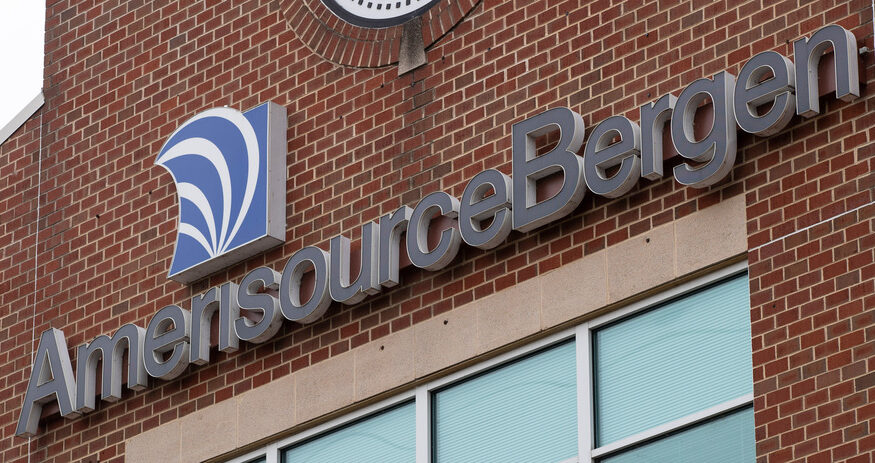United Healthcare suit against cancer drug distributor time-barred
By: Laura Brown//May 2, 2024//
The U.S. District Court for the District of Minnesota has dismissed a lawsuit filed by United Healthcare Services (UHS) against AmerisourceBergen and its defendant subsidiaries for what it alleged were “adulterated” oncology drugs. In an April 24 decision, District Judge Donovan Frank concluded that UHS’s claims were time-barred.
UHS claimed that from 2001 to 2014, AmerisourceBergen, along with its defendant subsidiaries, engaged in an illicit scheme to distribute and market doses of adulterated oncology medications. Minnesota patients, along with patients across the country, used those drugs. Many were insured through programs administered by UHS.
Defendant Medical Initiatives would create pre-filled syringes of oncology drugs for an AmerisourceBergen subsidiary to sell or distribute to health care providers. However, UHS claims that AmerisourceBergen did not register Medical Initiatives with the FDA and that Medical Initiatives did not act as a pharmacy selling the pre-filled syringes.
Although it was common practice in the industry to pool and repackage the excess content from syringes for clinical purposes, UHS asserts that Medical Initiative’s equipment and quality controls violated federal manufacturing requirements. As such, it alleged that the syringes were “adulterated, dangerous, tainted, effectively worthless, and had no market value.” It also asserted that the FDA-approved labels on the products were false, misleading, and violated the safety standards of the CDC.
Additionally, UHS claimed that the defendants pressured physicians to purchase the pre-filled syringes of a medicine called Procrit. They asserted that AmerisourceBergen did this by giving them rebates — essentially kickbacks — that violated federal and state law.
The pre-filled syringe program was subject to previous government investigations and civil actions. Those investigations were disclosed in SEC filings by defendants. Additionally, AmerisourceBergen’s subsidiary agreed to pay a $208 million criminal fine and a criminal forfeiture of $52 million. This was posted in a press release that was on the Department of Justice website.
Additionally, defendants settled with the United States in the qui tam False Claims Act action. Though they denied liability, defendants agreed to compensate the federal government and state Medicaid programs in the amount of $625 million.
UHS did not file this action until September 2023. The allegations included common law fraud, violation of the Minnesota Consumer Fraud Act, violation of the Minnesota Unlawful Trade Practices Act, violation of Minnesota’s Deceptive Acts Against Senior Citizens statute, and a claim of unjust enrichment/money had and received. This was all regarding the same conduct that was the subject of the settlement.
The defendants moved to dismiss, stating that UHS’s claims were untimely. Frank agreed.
“There is no dispute that the alleged violations of the relevant consumer statutes occurred outside of the statute of limitations because the complaint pleads all relevant conduct occurred between ‘approximately 2001 and 2014,’” Frank wrote.
UHS claimed that AmerisourceBergen acted in ways that concealed the nature of their actions. This included selling the pre-filled syringes with deceptive records and packaging, taking off drug labels and original expiration dates, representing itself as following safety standards and regulations, and misstating or omitting information to regulators.
However, Frank found that those allegations “do not plausibly allege with particularity that AmerisourceBergen concealed UHS’s causes of action and that UHS could not have uncovered any active concealment by reasonable diligence.”
Regarding UHS’s statutory and unjust enrichment claims, Frank determined that the six-year statute of limitations began to run when the most recent violations of damage occurred, which was 2014. Additionally, Frank stated that UHS’s common law fraud claim was also time-barred, as UHS “could have and ought to have discovered this claim” by November 2016.
“The alleged statements and conduct regarding the alleged fraudulent concealment do not demonstrate that AmerisourceBergen prevented or attempted to deter UHS from looking into the facts underlying its claims here,” Frank stated.
Legal News
- Former prosecutor suspended for unwelcome contact during legal conference
- One Wisconsin Attorney’s misconduct ‘in a league of its own’
- Wisconsin election fraud charge issued from November 2022 general election
- Indigenous consultant accuses NHL’s Blackhawks of fraud, sexual harassment
- Man pleads guilty in theft of Arnold Palmer green jacket, other Masters memorabilia from Augusta
- KS Governor cites competition concerns while vetoing measure for school gun-detection technology
- U.S. Attorney Gregory J. Haanstad recognizes service and sacrifice of federal, state, local, and Tribal law enforcement
- Gov. Evers calls special elections for the 4th Senate District and 8th Congressional District
- Wisconsin GOP-led Senate votes to override nine Evers vetoes in mostly symbolic action
- Bill to curb mask-wearing at protests could make it illegal for medical reasons too
- University board slashes diversity program funding to divert money to public safety resources
- Second defendant convicted in Fond du Lac 2016 firebombing
WLJ People
- Power 30 Personal Injury Attorneys – Russell Nicolet
- Power 30 Personal Injury Attorneys – Benjamin Nicolet
- Power 30 Personal Injury Attorneys – Dustin T. Woehl
- Power 30 Personal Injury Attorneys – Katherine Metzger
- Power 30 Personal Injury Attorneys – Joseph Ryan
- Power 30 Personal Injury Attorneys – James M. Ryan
- Power 30 Personal Injury Attorneys – Dana Wachs
- Power 30 Personal Injury Attorneys – Mark L. Thomsen
- Power 30 Personal Injury Attorneys – Matthew Lein
- Power 30 Personal Injury Attorneys – Jeffrey A. Pitman
- Power 30 Personal Injury Attorneys – William Pemberton
- Power 30 Personal Injury Attorneys – Howard S. Sicula













